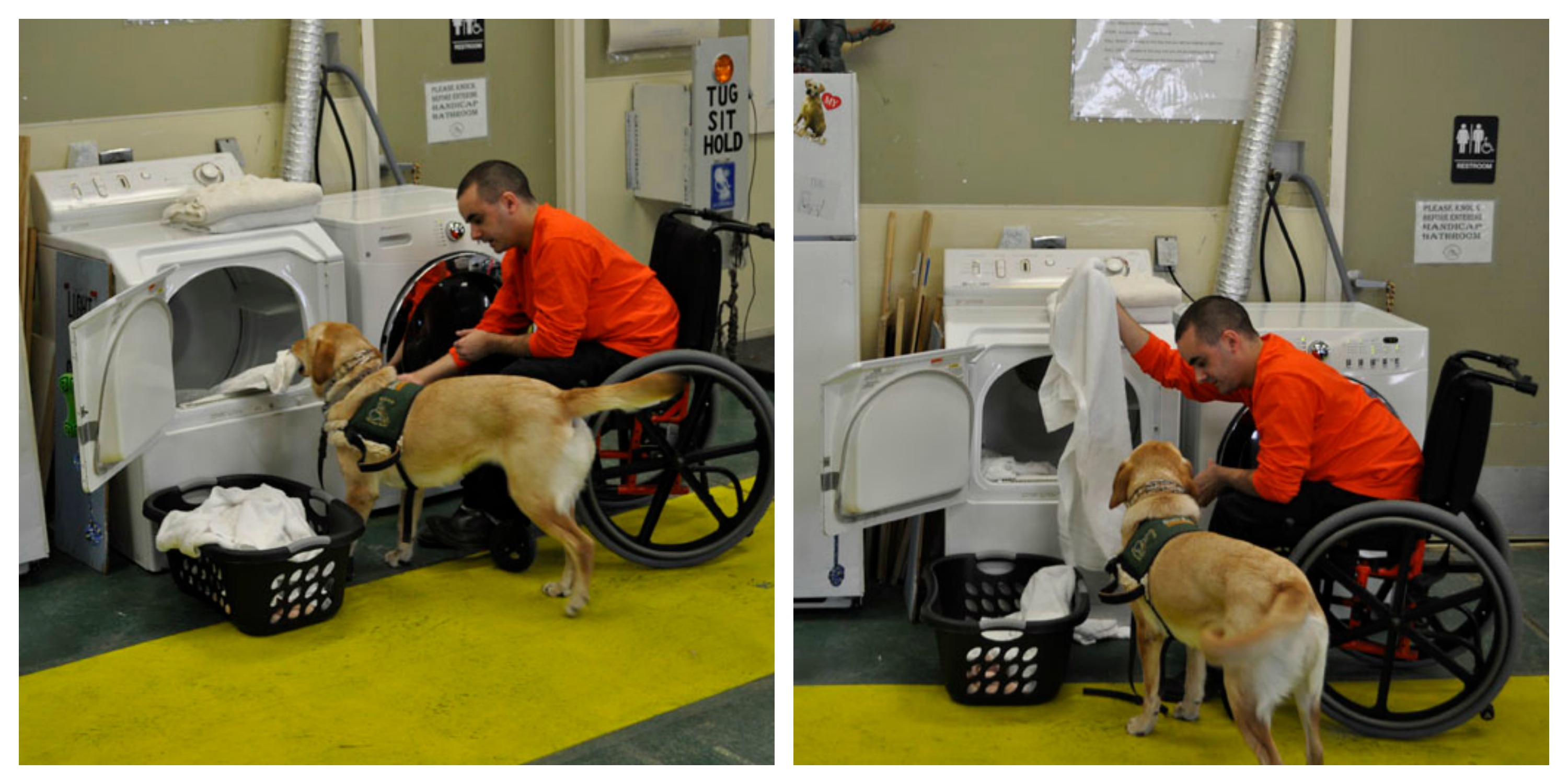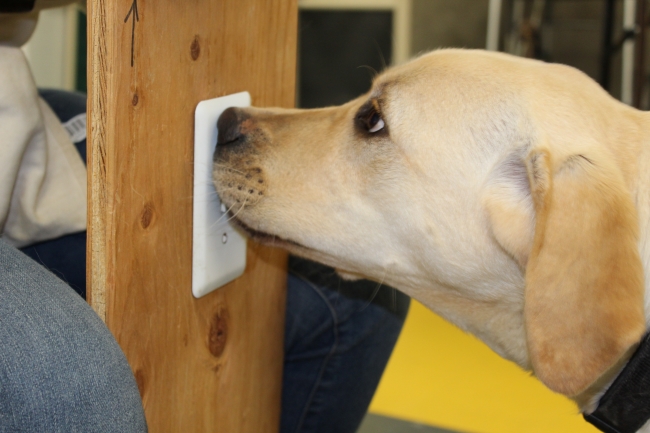People with chronic health conditions, like muscular dystrophy (MD), can experience difficulty getting out and about. Mobility can be challenging, severely limiting a person’s ability to be independent. However, many people living with MD maintain mobility and independence with a Service Dog.
What Is Muscular Dystrophy
Muscular dystrophies encompass a group of more than 30 genetic diseases. They cause weakness and loss of muscle mass. They are typically due to a gene mutation that interferes with the body’s ability to produce proteins to keep muscles healthy.
Over time, muscle weakness decreases mobility, making everyday tasks challenging. In addition, each type of muscular dystrophy affects specific muscle groups, with signs and symptoms appearing at different ages, some occurring in infancy. In contrast, others don’t appear until middle age or later.
Service Dogs Make Challenges Less Daunting 
Muscular dystrophy can be a debilitating condition characterized by progressive weakness and degeneration of the skeletal muscles that control movement. Rigorously trained Service Dogs can assist people with disabilities and illnesses, provide mobility assistance for muscular dystrophy patients, and more.
Ways Service Dogs Can Help People With MD
With the right support, life can be easier. Service Dogs serve MD patients in many ways, from the practical to the emotional. Here are just a few of the ways a Service Dog can transform the life of a person living with MD:
Retrieving Items
A Service Dog can assist a person who uses a wheelchair, experiences muscle weakness, or has difficulty moving around with fetching and carrying certain items on command.

Pushing Buttons
Having a Service Dog that can push elevator buttons and handicap door openers can be the difference between being stuck in the rain outside a building or entering a warm building.
Supporting Mental Health
A canine companion can help with mental health conditions, like depression and anxiety, which many people with MD experience. Interaction with a service animal can reduce anxiety, release stress-relieving chemicals, and lower a person’s blood pressure and heart rate.
Calling for Attention or Help
If a person with MD experiences a medical emergency, a Service Dog can be trained to seek help.
Assisting With Household Tasks
 Service Dogs can learn to answer the door, turn the lights off and on, retrieve medication, open and close doors, take items out of front loader washer/dryer, and more. Having the assistance of a Service Dog to take care of these types of tasks can help lighten the daily load for those with mobility or motor issues.
Service Dogs can learn to answer the door, turn the lights off and on, retrieve medication, open and close doors, take items out of front loader washer/dryer, and more. Having the assistance of a Service Dog to take care of these types of tasks can help lighten the daily load for those with mobility or motor issues.
Wheelchair Assistance
Service Dogs can help those in a wheelchair navigate up and down ramps (or even pull the chair up a ramp or sidewalk curb). A Service Dog can also be trained to help a person get into and out of their wheelchair.
Promote Communication
People with MD and other disabilities often suffer from isolation. Being out and about with a Service Dog can prompt conversation with strangers. Having a four-legged companion can make it easier for people to approach.
Encourage Exercise
Service Dogs, like all dogs, need exercise, so having a Service Dog ensures that MD patients get daily exercise.
Service Dog Training
Educated Canines Assisting with Disabilities (ECAD) breed Service Dogs and begin their training when they’re puppies. By the time they’re nine months, they know several commands. They then undergo extensive training for 18 to 24 months before they are matched with someone.
Once a potential match has been identified, each person's final training is individualized. When a client arrives for team training, the dog has had up to 1,500 hours of training and socialization.
Help Us Change the Lives of People Living With MS (and Other Disabilities)
As well as being a trusted friend, a Service Dog can expand its partner’s motor abilities, granting them new independence and allowing them to get more out of life. Having a Service Dog by your side means you have more independence, can accomplish tasks that may otherwise be impossible, and enjoy a better quality of life. If you or a loved one has MD, contact Educated Canines Assisting with Disabilities to learn more or apply for a Service Dog.
Everyone can take part in helping people with disabilities with Service Dogs. Support us with a donation, bequest, or planned giving, contribute to our wish list, or create a fundraiser of your own. Your support can change someone’s life.


